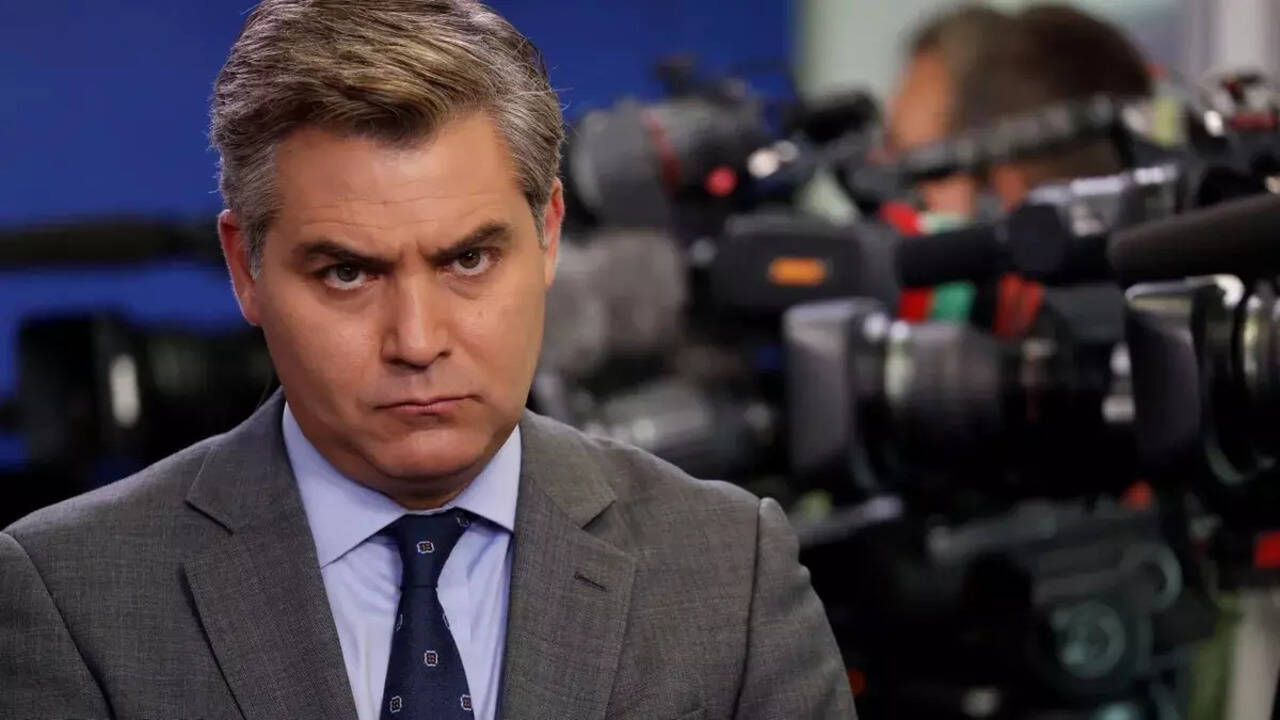
Why Did Jim Acosta Leave CNN? Inside the Veteran Journalist’s Surprising Exit
So, Jim Acosta is leaving CNN. If you’re like me, you probably did a double-take when the news broke. After nearly two decades with the network, the guy who became the face of CNN’s combative coverage during the Trump era is stepping away from his anchor desk. But why now? Was it the time slot shuffle? Corporate reshuffling? Or something deeper? Let’s unpack what we know—and what it means for journalism.
The Headline: Acosta’s On-Air Farewell
Jim Acosta, CNN’s Chief Domestic Correspondent and a household name for political junkies, announced his exit live on air in early 2025. At 53 years old, he didn’t mince words: “After giving all of this some careful consideration… I have decided to move on.” The kicker? CNN reportedly offered him a midnight time slot as part of their programming overhaul—a far cry from his prime-time prominence during the Trump years. For a journalist who once sparred with a sitting president at White House press briefings, the demotion felt like a quiet nudge out the door.
Acosta’s departure isn’t just about schedule changes, though. It’s a symbolic end to an era of cable news defined by high-stakes political drama—and a reminder that even star journalists aren’t immune to network shakeups.
The Backstory: From Obama to Trump—and a Career-Defining Moment
Acosta joined CNN in 2007, cutting his teeth on presidential campaigns and breaking news. But his career skyrocketed during the Trump administration. With his sharp questions and refusal to back down, he became a lightning rod for controversy—and a hero to critics of the 45th president. Remember that 2018 press conference where Trump called him “a rude, terrible person” and revoked his press pass? That moment cemented Acosta’s reputation as a journalist willing to “hold power to account,” as he often said.
But here’s the twist: Acosta’s proudest moment wasn’t about Trump. In 2016, he traveled to Cuba with Barack Obama, becoming one of the first U.S. journalists in decades to question Raul Castro about political prisoners. As the son of a Cuban refugee—his father fled the Castro regime in the 1960s—the trip was deeply personal. “It’s never a good time to bow down to a tyrant,” he told viewers, a mantra that shaped his approach to journalism.
Why Leave Now? The Midnight Slot and CNN’s “New Direction”
So why walk away after 18 years? The official story is scheduling. In 2025, CNN reshuffled its lineup, shifting heavyweights like Jake Tapper and Wolf Blitzer to new roles while axing 6% of its workforce. Acosta’s show was bumped from its prime-time slot to midnight—a move that felt like a silent pink slip. Insiders say he was offered the chance to stay on overnight, but for a journalist used to driving the day’s biggest stories, the offer was… underwhelming.
But there’s more beneath the surface. Acosta’s unapologetic style clashed with CNN’s post-2020 pivot toward “balance.” As the network leaned into softer interviews and bipartisan dialogue (hello, Chris Wallace), Acosta’s fiery monologues about Trump’s second term began to feel out of step. “He didn’t want to soften his tone,” a source close to CNN admitted. “And the network didn’t want another Trump-era lightning rod.”
Family, Net Worth, and What’s Next for Acosta
Jim Acosta isn’t just a journalist—he’s a family man. Married to Sharon Mobley Stow, a former CBS News producer, the couple shares a daughter who’s now in her late teens (fun fact: Acosta often jokes that she’s his toughest critic). While he’s kept his personal life relatively private, friends say his decision to leave CNN was influenced by a desire to spend more time at home after years of grueling political coverage.
Financially, Acosta’s exit won’t hurt. His net worth in 2025 is estimated at $4 million, thanks to his CNN salary, bestselling books (The Enemy of the People: A Dangerous Time to Tell the Truth in America), and speaking gigs. Rumor has it he’s eyeing a return to long-form journalism or even a teaching role. “I’ll always be a reporter,” he told fans on social media. “But maybe without the 3 a.m. wake-up calls.”
The Bigger Picture: Cable News in Crisis
Acosta’s exit isn’t an isolated incident. From Fox News’ Tucker Carlson to MSNBC’s Brian Williams, marquee anchors are leaving traditional networks as viewers flock to streaming and TikTok. CNN’s cuts—part of a broader Warner Bros. Discovery cost-slashing spree—highlight an industry scrambling to adapt. “The golden age of cable news is over,” says media analyst Sarah Fischer. “Networks are chasing younger audiences, and that means less room for old-school partisan warriors.”
For Acosta, that shift might’ve sealed his fate. Love him or hate him, he represented a brand of journalism that thrived on confrontation—a style that’s increasingly out of vogue in today’s fractured media landscape.
Legacy: The Reporter Who Wouldn’t Back Down
Jim Acosta’s career was built on a simple idea: “The press is not the enemy.” Whether grilling dictators or presidents, he saw his role as a bulwark against authoritarianism—a conviction rooted in his family’s escape from Cuba. Critics called him self-aggrandizing; supporters praised his courage. But few could ignore his impact.
As he signs off from CNN, Acosta leaves behind a polarizing but undeniable legacy. In an age where trust in media is cratering, he reminded us why journalism matters—even when it’s messy, loud, and inconvenient.
What’s Next? Podcasts, Protests, and a Possible Comeback
Don’t expect Acosta to fade quietly. Insiders hint he’s already pitching a podcast focused on press freedom, and he’s rumored to be advising Democratic campaigns ahead of the 2026 midterms. Could a Substack newsletter or a surprise return to TV be in the cards? “Never say never,” he teased in a recent interview.
One thing’s certain: Jim Acosta won’t stop asking tough questions. The only difference? This time, he’s answering to himself.
What do you think about Acosta’s departure? Was CNN right to move on, or did they lose a vital voice? Sound off in the comments—let’s get conversational. 😉
Popular Categories





